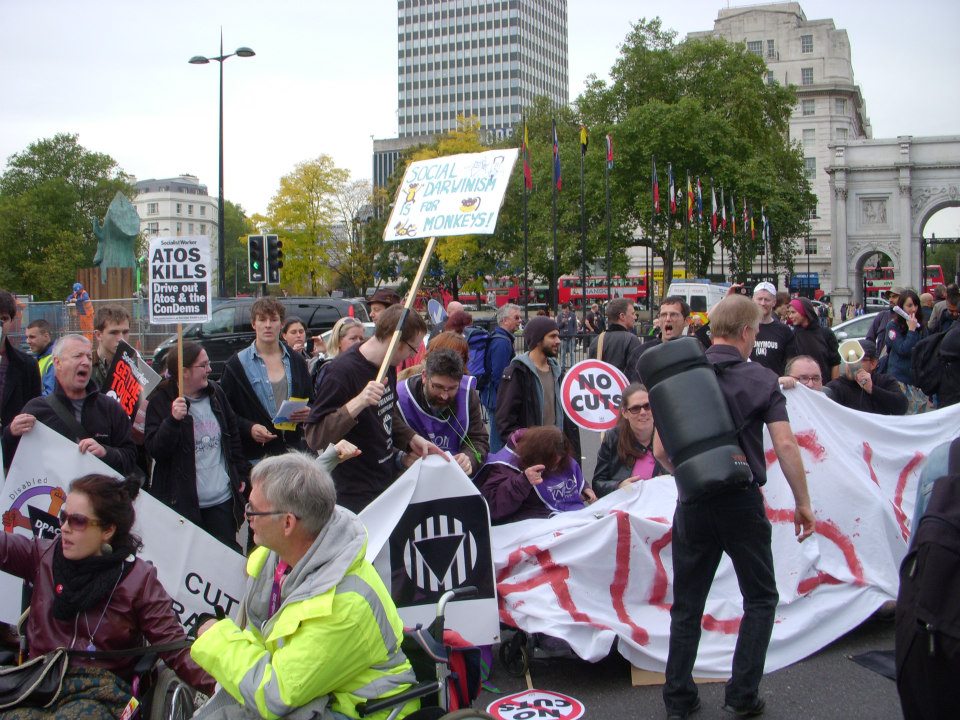Published on Oct 20, 2012 by latentexistence

BBC News interviewed Rob Murthwaite from DPAC (left, holding joint DPAC/Black Triangle Banner) about cuts and austerity on the day of the TUC protest march “A Future That Works” on the 20th October 2012. #oct20

danger – usual bbc propaganda bastard on the lose – Rob tried but was manfully overcome by a bbc person earning in excess of £150000 who is obviously feeling the cuts bite!!!!!
I think Rob did well but the bbc soon ended it when the reporter had no answer to the last question
Let there be Redistribution of Wealth from Rich to Poor
End the Theft from the Poor
Scrap Nuclear Weapons Now Not Welfare
Rob Murthwaite you did as best as you could after a long day and held your ground, well done to everyone that attended and those that did their bit behind the scenes.
The reporter frustrated me with his “why should disabled people be treated differently” question, as that is an ignorant question as vulnerable disabled people have the legal right (a much needed and helpful right) to be treated more favourably to take into account substantial disadvantage, disability and detriment under the wonderful Equality Act 2010 but it’s cruelly almost impossible to enforce via England’s corrupted, ignorant, discriminatory and oppressive County Court system. I speak with experience due to suing the Solicitors Regulation Authority (case 1SE06800) for disability discrimination in services using form N1 via Sheffield County Court, horrific experience now as Mum and I are unlawfully blacklisted from any solicitors we approach for help.
Rob did really well to get across vital points like the 32 people a week dying after wrong ESA decisions( recent reports now put it at 73), and the fact that the richest 1% are doing very nicely financially, while thousands of the poorest starve.
I thought generally that considering how rubbish the BBC has been on this issue, this report wasn’t too bad. Annoying though that the interviewer seemed not to know the difference between DLA and ESA, just like the majority of the British public, unfortunately.